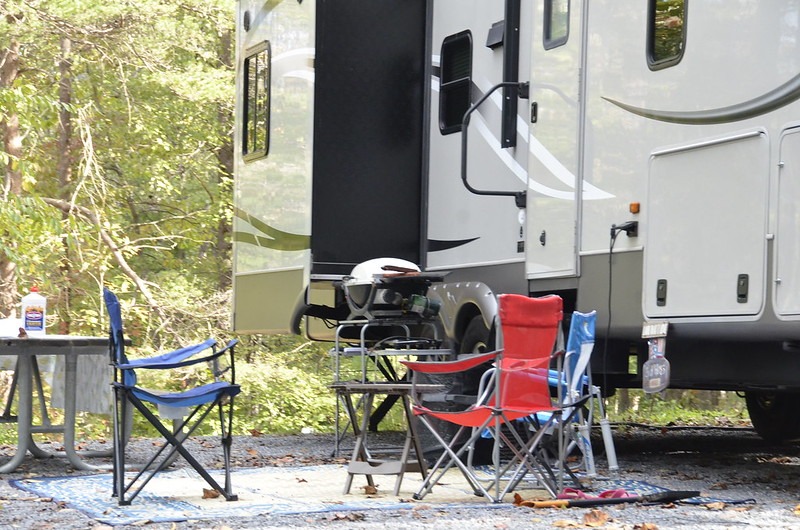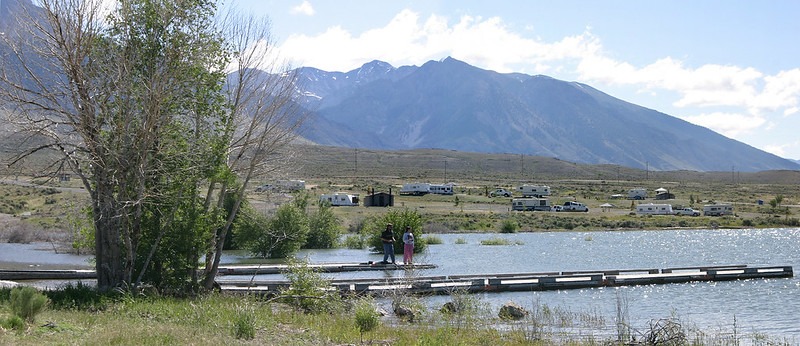
Ready for some cool insights into your RV fridge? Absorption refrigerators are a classic over 100 years old! Totally different from the compressor fridges we’ve got at home. These bad boys don’t need a compressor or refrigerant. They use heat to drive the cooling process. So, that means your fridge can run on propane or 120-volt AC power, and it also needs 12-volt DC for the control panel. Pretty neat, huh?
Now, if you’re out on your adventures and the fridge starts being iffy, the first thing to check is whether your RV is level or not. Seriously, the whole ‘level RV’ thing is crucial. Without it, the cooling coils might get messed up. So, make sure your RV is parked nice and flat before you panic about the fridge not working right.
Another essential point to remember is the power sources. The fridge needs a trifecta to run smoothly – 12-volt DC for the control panel, propane for when you’re off-grid, and 120-volt AC when you’re hooked up to shore power. If one of these isn’t working right, it can throw a wrench in the works. Keep an eye on your battery levels, propane tank, and shore power connection.
Learning these basics sets you up for conquering any fridge troubles down the road. Keep these points in mind, and you’re already ahead of the game!
Preliminary Checks and Basic Troubleshooting Steps
First things first, let’s make sure everything’s turned on. Sometimes the simplest stuff gets overlooked. Verify that the control panel is actually powered up. You’ll need to make sure the coach battery is charged and that the battery disconnect switch is in the right position. No power, no cooling.
When using propane, listen for that sweet ignition sound. A little *click* followed by a steady flame means you’re in business. No sound? No flame? You’ve got a problem. It could be low propane or something more complex.
If you’re plugged into shore power, make sure other appliances are working. Grab a thermometer and check the interior temps of the fridge. No coldness coming in? Check your circuit breaker and fridge power cord connection. It might be as simple as a tripped breaker or a loose plug.
Now, let’s see if it’s a propane thing. If everything works fine on propane but nothing on electric, it could be a fuse issue. Check the 120-volt fuse on the fridge’s circuit board and the heating element. Remember, safety first—turn off all power sources before poking around.
Don’t forget about airflow. Proper circulation inside and around the fridge keeps things chill. Clean out any obstructions and check the door seals. Sometimes a simple adjustment makes a big difference.
Common Issues and How to Resolve Them

Fridge working on propane but not electric? First, make sure the circuit breaker hasn’t tripped. Confirm the fridge is properly plugged into the power source. Check the 120-volt fuse on the fridge circuit board and verify the heating element’s integrity. Usually, one of these simple fixes will do the trick.
If the fridge works on electric but not propane, make sure your propane tank isn’t empty and the service valve is open. If propane gas isn’t flowing, you might have a propane lockout. Switch off all propane appliances, turn the service valve off, and then switch it back on. Also, reset the fridge if ignition attempts fail.
Is your fridge that’s not getting cold enough? Give it up to 8 hours to cool down properly. Avoid overfilling it as that restricts air circulation. An aftermarket internal fan can help distribute the cold air more evenly. Always check the door seals and make sure the drip tube cap is properly placed.
If your RV isn’t level, your fridge could struggle to cool things down. Get a leveler and make sure everything’s balanced. Being unlevel can lead to overheating and damage. Egg up your RV leveling game to maintain your fridge’s longevity.
Sometimes, peculiar smells or odd sounds indicate it’s time to replace the cooling coils. Ammonia smells, gurgling noises, or yellow-green powder near the burner assembly aren’t normal. Recognize these symptoms to avoid bigger issues down the line.
When to Call an RV Technician
Some problems need a pro’s touch. Every RV owner hits that point where casual troubleshooting just won’t cut it. If you’re looking at tricky issues like rewiring or replacing glass fuses, it’s best not to wing it.
Problems with your circuit board? That’s another call-the-expert situation. Whether it’s a full reset or swapping out components, these fixes get technical fast. And if your fridge is part of a recall, definitely bring in a technician. They’ll sort out the repairs and ensure everything’s up to code.
If your fridge isn’t cooling despite all efforts, it might be about more than just airflow. External airflow baffle installations might be necessary, and that’s not a do-it-yourself project. These baffles improve ventilation and keep your fridge running efficiently and safely.
Lastly, if you’ve run through all the troubleshooting tips and your fridge still won’t cooperate, it’s time to consult an RV technician. You’ve done your part, and bringing in a professional saves time and prevents more serious damage.